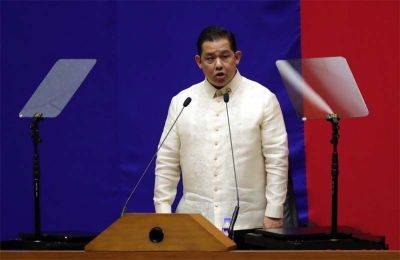COP28 and our losing battle against climate change
The 28th Climate Change Conference recently concluded in Dubai. As usual, the conference was chockful of presentations warning us of impending climate-induced doom. Sadly, the world is losing its fight against climate change.
Global warming is accelerating. Since the start of the industrial revolution 263 years ago, coal, oil and gas powered man’s insatiable appetite for electric power. The unabated use of fossil fuels has caused global temperatures to rise by 1.2 degrees Celsius since the industrial revolution began.
Experts warn that should global temperatures increase by 2 degrees Celsius, the consequences on the planet will be severe. Natural disasters like heat waves, super typhoons, ocean acidification, biodiversity loss and fresh water scarcity will occur with alarming frequency. Worse, rising sea levels will reclaim many coastal areas back to the ocean, including many parts of the Philippines.
With clear and present threats, the urgency to reduce carbon emissions has reverberated worldwide. Nations, including the Philippines, pledged to reduce their carbon emissions.
During the Climate Change Conference in 2015 (COP21), governments from around the world made commitments to limit global warming to under 2 degrees Celsius from pre-industrialization levels, while pursuing efforts not to exceed 1.5 degrees Celsius. Countries that are parties to the Paris Agreement submitted their targets and plans for decarbonization. These are known as Nationally Determined Contributions (NDCs).
It has been eight years since the ratification of the Paris Agreement and many developed countries (mostly in Europe) boast of having met their NDCs. In actuality, most of these countries have merely transferred their manufacturing industries to emerging economies. What we see today is a geographical off-set of emissions, not a substantial reduction of it. The world continues to get warmer.
How is the Philippines performing in terms of its NDCs? The Philippines emits an annual average of 1.98 metric tons of greenhouse gases per person, way below the global average of four metric tons per person. Yet, we committed to reduce our emissions by an ambitious 75 percent. Only 2.71 percent







